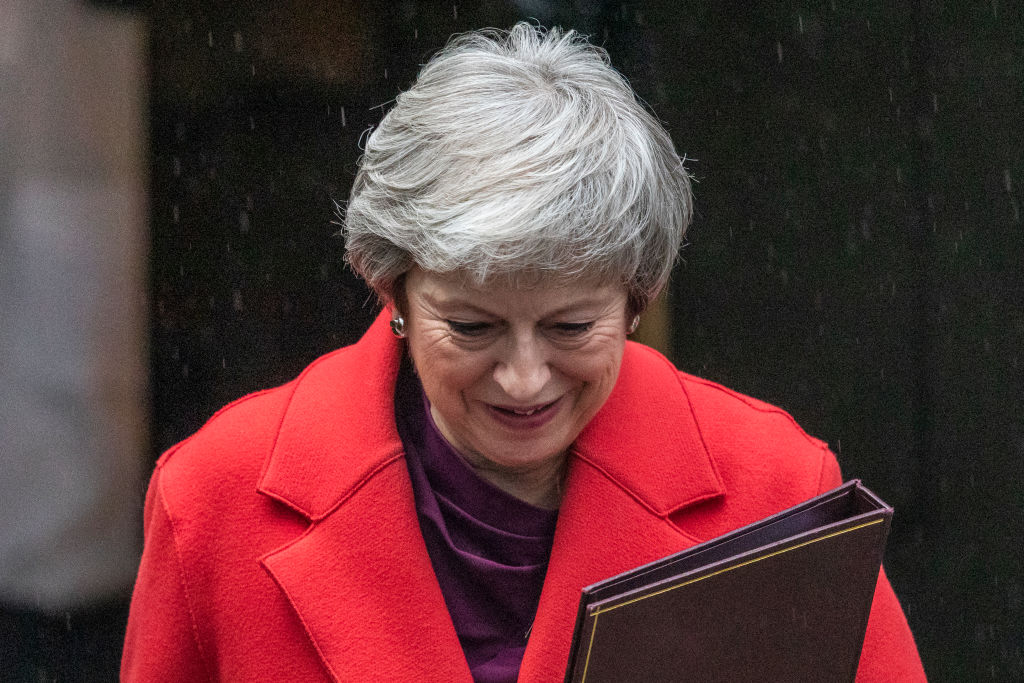In Parliament yesterday, Theresa May repeated Philip Hammond’s fallacious argument that because the Brexit referendum result was 52:48, the form of Brexit should be a compromise between leaving the EU and remaining in it. This argument completely distorts the notion of democracy.
Firstly, no such argument was ever deployed when it was a question of accepting the Maastricht, Amsterdam, Nice and Lisbon treaties. Secondly, the referendum was not subject to any threshold level of support for one position or the other. And David Cameron and George Osborne stated very explicitly that a victory for “Leave” – even by a single vote – would mean leaving the Single Market and the Customs Union. It is only those on the losing side, including May and Hammond, who now seek to re-interpret the implications of the referendum result. Somewhat more subtly, but still rather straightforwardly apparent, the argument put forward by May would also imply that no Government constituted by a single party should ever pursue its election programme, however unambiguous its election manifesto had been and however uncontested its majority in Parliament, as long as a significant minority disagreed with it.
A properly-functioning democratic system requires two things: that the majority should have control of government; and that the rights of minorities must be respected. That does not mean that the minority can block the decisions of the majority. But it does mean that there must be no vindictiveness aimed at the minority and, more generally, that the representatives of the majority must rule for the benefit of the nation as a whole. In such a well-functioning system, the duty of the Government is not to implement policies that satisfy no one. It is instead to design and implement policies and to explain them properly as being a benefit of the nation as a whole. May’s Government has made no attempt whatsoever to fulfil that duty.
By introducing and enacting the Brexit referendum result into law, the Government and Parliament agreed to defer to the majority of voters who backed Leave and who, consequently, backed Britain’s exit from the Single Market and the Customs Union. In doing so, they accepted (if not in terms of legal obligation then in terms of democratic obligation) that the view of the electorate, as expressed in the 2016 referendum, about what was best for the nation as a whole should prevail, irrespective of the personal opinions of MPs. The duty for the Government then was to attempt to negotiate the best arrangements to bring about Britain’s departure from all the institutional mechanisms and constraints of EU membership. This negotiation, if done properly, should have sought to maintain sensible arrangements, such as those on citizens’ rights, on aviation, pharmaceutical standards, on visa-free tourism, on driving licences, on minimising customs formalities and on security and intelligence cooperation. After all, arrangements on these issues are common between sovereign states and don’t depend on EU membership. Had the Government done that, it would have allayed the concerns, justified or paranoid, of some Remainers that the problems they feared would be created by leaving the EU did not in fact exist.
Instead, May’s Government has done precisely the opposite. It has sought through the Withdrawal Agreement to defy the referendum decision. It is attempting to further reduce British sovereignty. Instead of dissolving problems in the minds of some Remainers, its propaganda and its refusal to prepare for the full exit mandated by the referendum have intensified those unnecessary fears. The Government has even inculcated those fears in the minds of some Leave voters by telling them that, in effect, they did not know what they were voting for, as if Cameron and Osborne had never made it unmistakably clear. The behaviour of the Government – May, Hammond, several other cabinet ministers and the civil service – has been explicitly anti-democratic. In doing so, it has mirrored the nature of the EU itself. It cannot be allowed to succeed: leaving the EU means leaving the EU, and democracy means leaving on WTO rules.






Comments